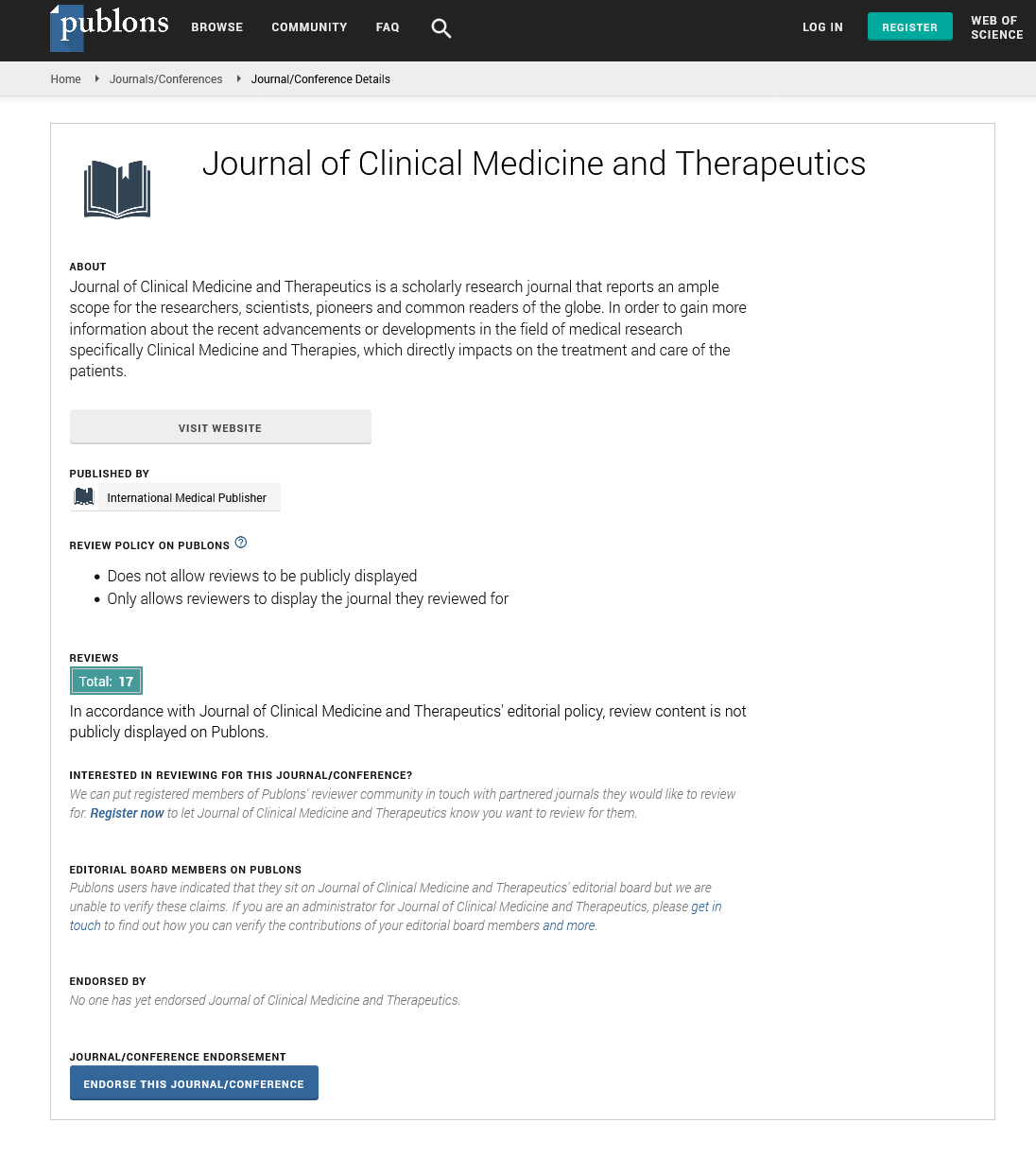Abstract
Association between the ACE (I/D) Gene Polymorphism and Hepatocellular Carcinoma Risk in Egyptian HCV Patients
Abstract
Background and Study Aims: Hepatocellular carcinoma (HCC) is one of the most fatal malignancies worldwide and is related to many risk factors. Chronic Hepatitis C virus (HCV) is associated with a 20–30-fold increased risk for HCC. Angiotensin-converting enzyme (ACE) is over expressed in many cancers and plays a major role in both angiogenesis and carcinogenesis. We aimed to elucidate the effect of the ACE I/D gene polymorphism in patients with HCV-related liver cirrhosis and HCC, as well as its relationship to clinical parameters.
Patients and Methods: The study included 120 patients, 60 cirrhotic and 60 HCC, and 60 healthy subjects (controls). Liver and renal function tests, alpha-fetoprotein, HCV antibodies and triphasic CT were assessed. Gene polymorphism was assessed by Nested PCR.
Results: We observed higher frequencies of DD (36.7%) and DI (51.7%) genotypes, along with the D allele (62.5%),in HCC compared to those of cirrhotic cases (10%, 40% and 30%, respectively; P< 0.001) and control subjects (6.7%, 38.3%, and 25.8%, respectively; P< 0.001). DD and DI genotypes increased the risk and predicted the occurrence of HCC by OR 25.932 [95% CI: 6.78 – 99.19] and OR 6.354 [95% CI: 2.39 – 16.89], respectively, compared to control subjects (OR 15.714 [95% CI: 4.63 – 53.30]) and cirrhotic cases (OR 5.536 [95% CI: 2.08 – 14.75]). The D allele conveys significant risk for HCC compared to control and cirrhotic groups with OR 4.785 [95% CI: 2.76 – 8.30] and OR 3.889 [95% CI: 2.27 – 6.66], respectively. Both the DD genotype and D allele are significantly correlated with larger tumor size (P<0.001) and metastasis (P<0.001).
Conclusion: The ACE I/D polymorphism (DD genotype and D allele) is significantly associated with HCC risk in HCV patients and is correlated with increased tumor growth and advanced stage
Author(s): Naglaa S. Elabd
Abstract | PDF
Share This Article
Google Scholar citation report
Citations : 95
Journal of Clinical Medicine and Therapeutics received 95 citations as per Google Scholar report
Journal of Clinical Medicine and Therapeutics peer review process verified at publons
Abstracted/Indexed in
- Publons
- Secret Search Engine Labs
Open Access Journals
- Aquaculture & Veterinary Science
- Chemistry & Chemical Sciences
- Clinical Sciences
- Engineering
- General Science
- Genetics & Molecular Biology
- Health Care & Nursing
- Immunology & Microbiology
- Materials Science
- Mathematics & Physics
- Medical Sciences
- Neurology & Psychiatry
- Oncology & Cancer Science
- Pharmaceutical Sciences

